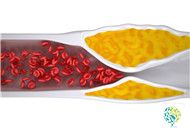The purpose of hematopoietic stem cell transplantation is to treat diseases. Generally, there are no harms after successful transplantation, but there may be sequelae. Sequelae after hematopoietic stem cell transplantation are numerous, and the common ones mainly include rejection, reactions, post-transplantation infections, as well as damage to the digestive tract, hemorrhagic cystitis, etc. After transplantation, attention should be paid to preventing colds, avoiding excessive fatigue, and taking more rest.

1. Hematopoietic stem cell transplantation is mainly aimed at the treatment of diseases such as leukemia and malignant lymphoma. After transplantation surgery, attention should be paid to diet, including eating high-nutrient foods that are light, easy to digest, and rich in vitamins, avoiding spicy and stimulating foods, resting, drinking plenty of water, and eating more fresh vegetables and fruits.
2. After hematopoietic stem cell transplantation, the patient's resistance is very low. Firstly, it is necessary to choose a clean and ventilated living environment. Learn to measure body temperature, and if the temperature is greater than 38℃, timely medical attention should be sought. After transplantation, patients should also avoid crowded and noisy public places (including shopping malls, restaurants, supermarkets, stations, etc.).
3. After hematopoietic stem cell transplantation, strict compliance with doctor's advice and careful nursing are required to maintain a good mindset and prevent infection and inflammation. If exposed to dirty objects, wash hands frequently, wear a mask, and keep the home space clean, ventilated, and well-lit. All these are very important.

